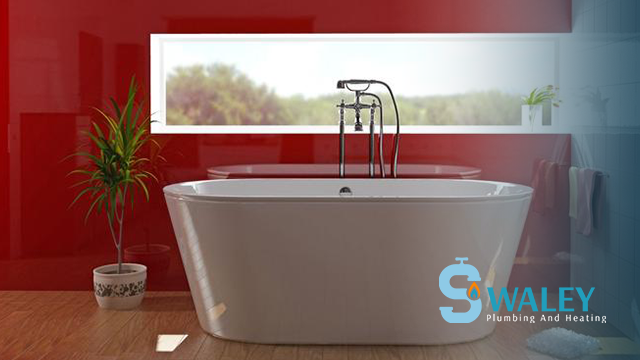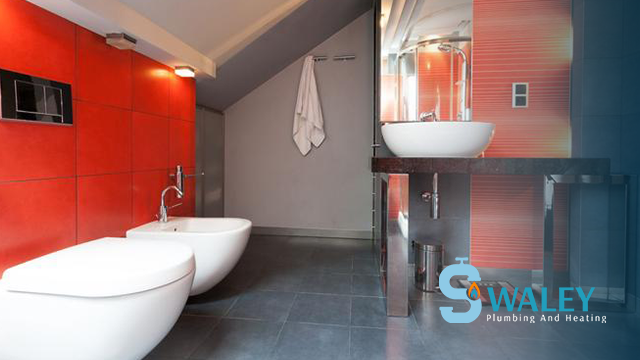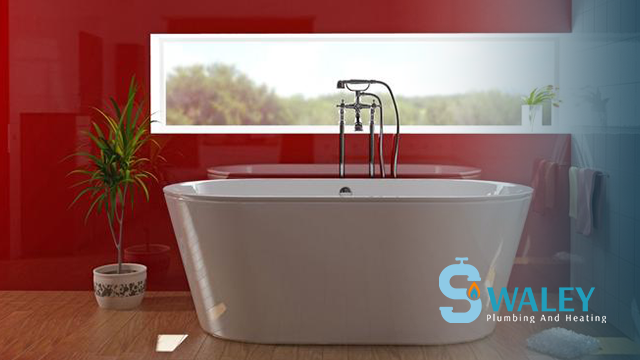Heating Advice: Tips and Tricks for a Warm and Comfortable Home
Introduction to Our Heating Advice Guide
As the crispness of autumn fades into the chill of winter, the importance of a cosy, efficient, and safe home heating system comes sharply into focus. This comprehensive guide is designed to navigate you through the intricacies of home heating, offering a plethora of tips and tricks to ensure your living space remains not just warm, but also a haven of comfort during the colder months. Whether you’re curious about the types of heating systems available, looking to improve your home’s energy efficiency, or seeking advice on maintenance and safety, this article aims to address all your heating concerns.
Understanding Your Heating System
A well-functioning heating system is the heart of a warm home during the cold months. But before diving into maintenance and efficiency tips, it’s crucial to understand the basics of how these systems work and the types available. This knowledge not only helps in making informed decisions about upgrades or repairs but also aids in effective day-to-day operation.
Types of Heating Systems
Heating systems come in various forms, each with its unique characteristics and benefits. The most common ones include:
- Forced Air Systems: Widely prevalent, these systems use a furnace to heat air and then propel it through ductwork and vents throughout the home. They are known for their ability to rapidly heat spaces and for their compatibility with central air conditioning systems.
- Radiant Heating: This system offers a more uniform distribution of warmth, emanating heat from surfaces like floors, walls, or ceilings. Radiant heating is highly efficient, providing a comfortable environment without the drafts often associated with forced air systems.
- Hydronic Systems (Hot Water Baseboards): Hydronic systems use heated water circulated through a network of pipes to radiators or baseboard units. These systems are praised for their steady, even heating and quiet operation.
How Heating Systems Work
Regardless of the type, the basic principle behind all heating systems is the generation and distribution of heat. In forced air systems, a furnace heats the air, which is then blown through ducts; radiant systems transmit heat directly from a warm surface to the room; and hydronic systems circulate hot water to radiators or baseboards, which then radiate the heat into the air.
Understanding the method of heat distribution is important for homeowners, as it can impact the choice of system based on factors like the layout of the home, existing infrastructure, and personal preference for the type of heat provided.
Maintenance Tips for Your Heating System
Regular maintenance is essential for the longevity and efficiency of your heating system. Here are some fundamental tips:
- Regular Checkups: Schedule annual inspections with a qualified technician. These checkups can identify potential issues before they escalate into costly repairs.
- Filter Changes: In forced air systems, regularly changing or cleaning the air filters is crucial. A dirty filter hinders airflow, reducing efficiency and putting more strain on the system.
- Ductwork Inspection: Leaks in the ductwork can significantly reduce a system’s efficiency. Inspect ducts for any signs of leakage and have them sealed if necessary.
- DIY Maintenance: Simple tasks like cleaning vents, ensuring radiators are not obstructed by furniture, and bleeding trapped air from radiators in hydronic systems can improve efficiency.
Each of these tips not only prolongs the life of your heating system but also ensures it runs more efficiently, potentially lowering your energy bills and reducing the risk of unexpected breakdowns.
Energy Efficiency and Cost Savings
One of the most significant aspects of home heating is its impact on both energy consumption and household budgets. With the right knowledge and practices, you can make your heating system not only more efficient but also more cost-effective.
Upgrading to Energy-Efficient Systems
Advancements in heating technology have led to the development of systems that use energy more efficiently, reducing both your carbon footprint and your heating bills. If you’re considering an upgrade, here are a few options:
- High-Efficiency Furnaces and Boilers: Modern furnaces and boilers have significantly higher efficiency ratings compared to older models. Look for units with an Energy Star rating, which indicates they meet strict energy efficiency guidelines set by the U.S. Environmental Protection Agency.
- Heat Pumps: Heat pumps are an increasingly popular choice for their dual ability to heat and cool a home. They work by transferring heat rather than generating it, making them exceptionally energy-efficient.
When contemplating an upgrade, consider the age of your current system, your home’s insulation, and the typical weather patterns in your area. These factors will influence the most suitable choice for your home.
Smart Thermostats and Automation
The advent of smart thermostats has revolutionized how we control our home heating. These devices offer several features that enhance energy efficiency:
- Learning Your Schedule: Smart thermostats can learn your daily routine and adjust heating accordingly, ensuring your home is warm when it needs to be and conserving energy when it’s empty.
- Remote Control: With a smart thermostat, you can control your home’s temperature from your smartphone, tablet, or computer. This means no more worrying about leaving the heating on when you’re away.
- Energy Usage Reports: Many smart thermostats provide detailed reports on your energy usage, helping you understand your heating habits and identify opportunities to save energy.
Incorporating a smart thermostat into your heating system is a straightforward step that can lead to significant savings on your energy bills.
Insulation and Sealing
A well-insulated and sealed home is key to energy-efficient heating. Insulation helps retain heat within your home, reducing the amount of energy needed to maintain a comfortable temperature. Key areas to focus on include:
- Attic and Roof Insulation: Heat rises, and without proper insulation, it can easily escape through the roof.
- Wall Insulation: Insulating your walls prevents heat loss, particularly in older homes that may not have been built with modern insulation standards.
- Sealing Windows and Doors: Gaps and leaks in windows and doors can let in cold air and let out warm air. Weatherstripping or caulking these areas can significantly reduce heat loss.
Improving your home’s insulation and sealing can have an immediate effect on your comfort and your energy bills. It’s an investment that not only pays off in the short term but also increases the value and efficiency of your home in the long run.
Get in Touch with Swaley Plumbing and Heating
At Swaley Plumbing and Heating, we understand that keeping your home warm, comfortable, and efficient is a top priority. Our team of experienced professionals is dedicated to providing you with the best heating solutions tailored to your unique needs. Whether you’re considering a new heating system installation, looking for maintenance services, or seeking expert advice on energy efficiency, Swaley is here to help.
Why Choose Swaley for Your Heating Needs?
- Expertise and Experience: Our team is well-versed in a variety of heating systems, from traditional furnaces to modern, eco-friendly options. We bring years of experience to every project, ensuring high-quality service.
- Personalised Solutions: We believe that every home is unique, and so are its heating needs. At Swaley, we work closely with you to understand your specific requirements and offer customised solutions.
- Commitment to Energy Efficiency: We are passionate about helping our clients reduce their carbon footprint and energy costs. Our experts can guide you in choosing the most energy-efficient heating systems and practices.
- Quality Customer Service: Our commitment to customer satisfaction is unwavering. We pride ourselves on being responsive, reliable, and ready to address any of your heating concerns.
Our Range of Services
Swaley offers a comprehensive range of heating services, including:
- Installation and Upgrades: Whether you’re building a new home or upgrading your existing heating system, we provide seamless installation services.
- Regular Maintenance and Repairs: Keep your heating system running smoothly with our maintenance services. We also offer prompt and efficient repair services for any heating issues you might encounter.
- Energy Efficiency Consultations: Interested in making your home more energy-efficient? Our experts can conduct audits and provide recommendations for improvements.
Contact Us Today
Don’t let heating issues leave you in the cold. Contact Swaley Plumbing and Heating today for a consultation. Our friendly team is ready to answer your questions and provide the support you need. Whether it’s for a quick fix, a major installation, or just expert advice, we’re here to ensure your home remains a warm and welcoming space all year round.




